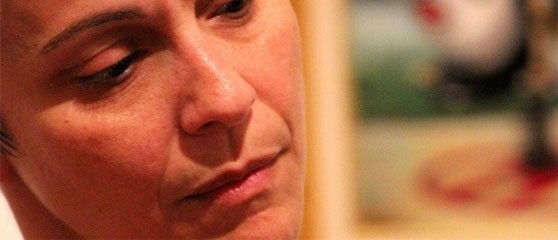Drug checking services provide a breakdown of the chemical composition of drug samples that people bring to laboratories. Depending on need, such services have been offered in festivals, through the mail or in covert locations. What they all share is a lasting impact on personal decisions about how they use drugs.
A recent systematic review by the Canada-based Centre on Drug Policy Evaluation (CDPE) conducted a 30-year retrospective analysis of research into these services, highlighting their usefulness, and how they can impact consumer behaviours. The study analysed 90 academic papers on drug checking services across multiple languages, although the majority were from Europe. It shouldn’t come as a surprise that drug checking services can have several benefits.
Why are drug checking services needed?
Firstly, they are a fantastic way of analysing what drugs are circulating in drug markets. The European Monitoring Centre for Drugs and Drug Abuse (EMCDDA) routinely analyses seized drugs to monitor for new synthetic substances, as well as determine levels of purity and common adulterants. Drug checking enables researchers, authorities and citizen-scientists to stay updated on trends in illicit markets, and pre-emptively deploy information to minimise their circulation and harms.
For people who use drugs, they are able to have some certainty on the contents of their powders, pills, or drops. Drug checking services enable more informed decision-making by letting you check whether your supply is adulterated or not. Misinformation on drug content can happen to consumers and sellers: small-scale drug suppliers may not be aware themselves that they are selling cut drugs, so accessing such services is beneficial for all those involved. Last year, a dealer (thankfully) destroyed a kilo of MDMA on social media after testing it and realising it contained no MDMA at all.
New research by the CDPE highlights the impact that drug checking services can have on altering consumer behaviours. Their findings showed that when test results were unexpected, such as containing an unknown adulterant, people were more likely to not use them; this was particularly the case in drug use for party settings.
Nazlee Maghsoudi, lead author of the systematic review, noted that “when drug checking services provide information on drug contents that is different from what the service user was seeking to consume, this new information has an impact on what they say they will do, as well as what they actually do, with the drug in question.” This enables people who use drugs to “make more informed decisions on their drug use, such as choosing to use less, discard the drug, seek more information on the drug, or share results with others.”
If the results were considered questionable or suspicious by those running drug checking services, people would most times change their original plan on how to use them. Accessing such information can be potentially life-saving: one of the studies reviewed found that a fentanyl detection encouraged positive changes in ‘overdose risk behaviours’ among people who inject drugs like using less, using with others, or doing a test shot.
“Drug checking is a complete healthcare intervention”
A key advantage of drug checking services is the unique contact with professionals that are available to answer any questions on drug use, poly-drug interactions and general safety tips around use. This is a rare interaction in prohibitionist countries, where access to medical advice is rarely personal, and usually has to be provided online and anonymously.
Adam Waugh is a member of Psycare UK and of the drug testing organisation The Loop, which has been setting up events-based drug checking services at UK festivals and events since 2016 told TalkingDrugs that when they provide test results to service users, they are not only providing a chemical breakdown of the drugs, but “a bespoke healthcare consultation”:
“There are lots of determinants of drug risk other than strength and adulterants, such as the route of administration, polydrug use, the setting taken in and more. Our healthcare professionals help the service user by firstly making them aware of what their drugs contain, but secondly, by having a wider discussion about drug safety and ways to reduce harm. We have found that our healthcare consultations have a lasting, beneficial impact on people’s drug taking behaviours.”
Although there is an increasing number of sources for online information on drugs and their effects on people, having such personalised, non-judgemental face-to-face advice is both rare and impactful for party-goers. The research that Waugh quotes shows how 64 per cent of service users reported changing their drug-using behaviours in the three months after a health intervention. And while there is always the possibility of conducting at-home reagent tests, they are open to greater misinterpretation of results, and —critically— provide no idea of the strength of their drugs. Waugh adds:
“Drug checking provides an opportunity for people to sit down and have an honest conversation about drugs with a healthcare professional, which for 95 per cent of our service users is the first time they have done so. While both reagents kits and drug checking services can bring value to people who use drugs, drug checking is a more complete healthcare intervention that is more likely to bring a lasting, positive impact on people’s health.”
A clear benefit of such healthcare interventions was explaining the importance of moderating doses to account for the strength of drugs, as well as understanding what sort of contextual and biological factors can impact how the effects are felt by an individual. Most importantly, such services have a ripple effect, where individuals that had their drugs tested and questions answered were more likely to talk about adulterants with their friends and be more conscious about the safest ways of using drugs than they were before.
So far, drug checking seems to be based on wins: reducing adulterants, increasing drug knowledge, even improving knowledge around informal market habits. What happens when you scale such an initiative up?
The beauty of nation-wide drug testing
In an unprecedented move in November 2021, New Zealand legalised drug checking. This isn’t to say drug checking services weren’t happening before, but now, such services can be properly and publicly announced without fearing legal repercussions, KnowYourStuff NZ, the New Zealander drug checking organisation, told TalkingDrugs.
Referring to the danger that comes from circulating adulterants in an unregulated drug market, “drug checking provides a way for people who use drugs to make an informed decision about whether or not to take a substance”. Consistent with findings from the UK, research conducted by Dr Fiona Hutton on drug checking in New Zealand festivals found that 68 per cent of those accessing drug checking services reportedly changed their behaviours after using the drug checking services. Interestingly, older age groups (from 35 years and above) were more likely to change their drug taking behaviours after using such services, further indicating that there is increased self-regulation when understanding the potential risks to their health.
Volunteers delivering drug checking services told TalkingDrugs they believed that “drug checking was about more than the test itself” – the dissemination of harm reduction information on dosing and drug interactions was just as important as test results. Those New Zealand MPs who are supportive of drug checking are now pushing for its increased availability in wider social contexts.
Greater access to harm reduction will save lives
Drug checking is an essential service that should not only be available in privileged settings such as festivals. They are a vital opportunity to provide a quick healthcare interventions for all types of drug-using populations.
Across the globe, drug checking services are an opportunity to enhance knowledge around safer use, how to dose correctly, and to identify dangerous adulterants that may unknowingly be in circulation. Maghsoudi hopes that the CDPE’s systematic review “can inform and support the expansion of drug checking services globally.”


